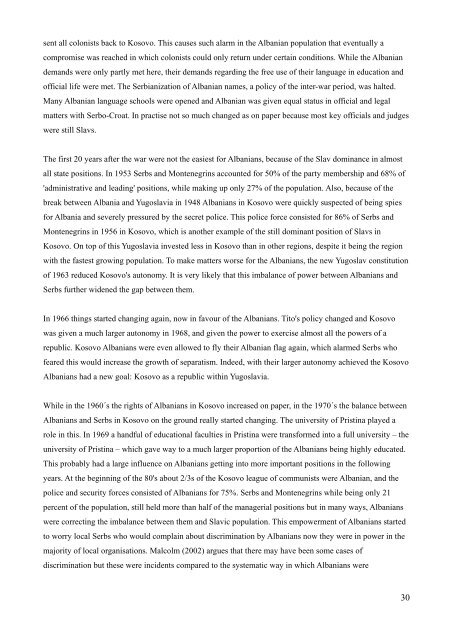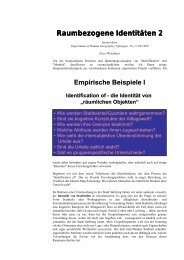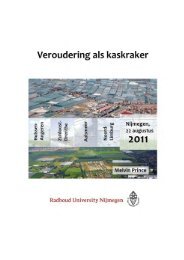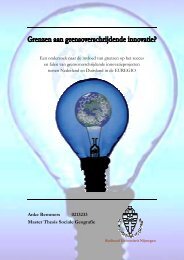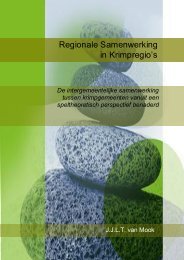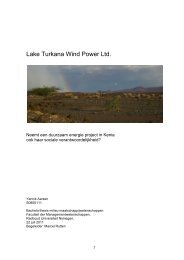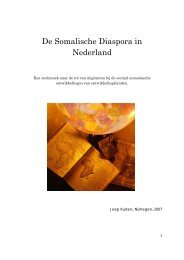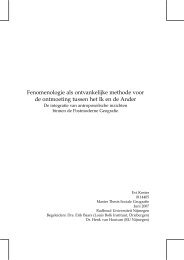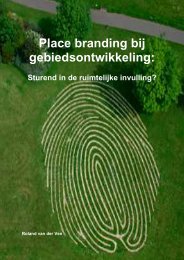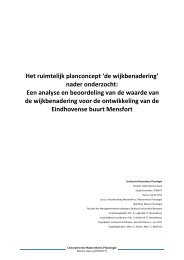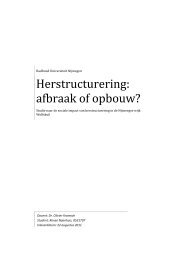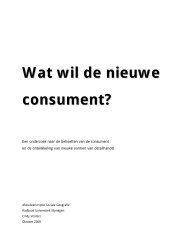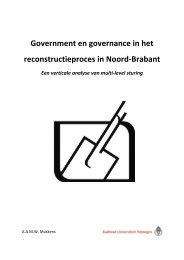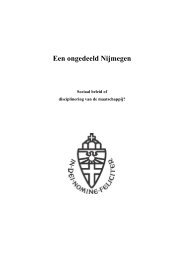Trading with the enemy in Mitrovica, Kosovo. - RUhosting
Trading with the enemy in Mitrovica, Kosovo. - RUhosting
Trading with the enemy in Mitrovica, Kosovo. - RUhosting
You also want an ePaper? Increase the reach of your titles
YUMPU automatically turns print PDFs into web optimized ePapers that Google loves.
sent all colonists back to <strong>Kosovo</strong>. This causes such alarm <strong>in</strong> <strong>the</strong> Albanian population that eventually a<br />
compromise was reached <strong>in</strong> which colonists could only return under certa<strong>in</strong> conditions. While <strong>the</strong> Albanian<br />
demands were only partly met here, <strong>the</strong>ir demands regard<strong>in</strong>g <strong>the</strong> free use of <strong>the</strong>ir language <strong>in</strong> education and<br />
official life were met. The Serbianization of Albanian names, a policy of <strong>the</strong> <strong>in</strong>ter-war period, was halted.<br />
Many Albanian language schools were opened and Albanian was given equal status <strong>in</strong> official and legal<br />
matters <strong>with</strong> Serbo-Croat. In practise not so much changed as on paper because most key officials and judges<br />
were still Slavs.<br />
The first 20 years after <strong>the</strong> war were not <strong>the</strong> easiest for Albanians, because of <strong>the</strong> Slav dom<strong>in</strong>ance <strong>in</strong> almost<br />
all state positions. In 1953 Serbs and Montenegr<strong>in</strong>s accounted for 50% of <strong>the</strong> party membership and 68% of<br />
'adm<strong>in</strong>istrative and lead<strong>in</strong>g' positions, while mak<strong>in</strong>g up only 27% of <strong>the</strong> population. Also, because of <strong>the</strong><br />
break between Albania and Yugoslavia <strong>in</strong> 1948 Albanians <strong>in</strong> <strong>Kosovo</strong> were quickly suspected of be<strong>in</strong>g spies<br />
for Albania and severely pressured by <strong>the</strong> secret police. This police force consisted for 86% of Serbs and<br />
Montenegr<strong>in</strong>s <strong>in</strong> 1956 <strong>in</strong> <strong>Kosovo</strong>, which is ano<strong>the</strong>r example of <strong>the</strong> still dom<strong>in</strong>ant position of Slavs <strong>in</strong><br />
<strong>Kosovo</strong>. On top of this Yugoslavia <strong>in</strong>vested less <strong>in</strong> <strong>Kosovo</strong> than <strong>in</strong> o<strong>the</strong>r regions, despite it be<strong>in</strong>g <strong>the</strong> region<br />
<strong>with</strong> <strong>the</strong> fastest grow<strong>in</strong>g population. To make matters worse for <strong>the</strong> Albanians, <strong>the</strong> new Yugoslav constitution<br />
of 1963 reduced <strong>Kosovo</strong>'s autonomy. It is very likely that this imbalance of power between Albanians and<br />
Serbs fur<strong>the</strong>r widened <strong>the</strong> gap between <strong>the</strong>m.<br />
In 1966 th<strong>in</strong>gs started chang<strong>in</strong>g aga<strong>in</strong>, now <strong>in</strong> favour of <strong>the</strong> Albanians. Tito's policy changed and <strong>Kosovo</strong><br />
was given a much larger autonomy <strong>in</strong> 1968, and given <strong>the</strong> power to exercise almost all <strong>the</strong> powers of a<br />
republic. <strong>Kosovo</strong> Albanians were even allowed to fly <strong>the</strong>ir Albanian flag aga<strong>in</strong>, which alarmed Serbs who<br />
feared this would <strong>in</strong>crease <strong>the</strong> growth of separatism. Indeed, <strong>with</strong> <strong>the</strong>ir larger autonomy achieved <strong>the</strong> <strong>Kosovo</strong><br />
Albanians had a new goal: <strong>Kosovo</strong> as a republic <strong>with</strong><strong>in</strong> Yugoslavia.<br />
While <strong>in</strong> <strong>the</strong> 1960´s <strong>the</strong> rights of Albanians <strong>in</strong> <strong>Kosovo</strong> <strong>in</strong>creased on paper, <strong>in</strong> <strong>the</strong> 1970´s <strong>the</strong> balance between<br />
Albanians and Serbs <strong>in</strong> <strong>Kosovo</strong> on <strong>the</strong> ground really started chang<strong>in</strong>g. The university of Prist<strong>in</strong>a played a<br />
role <strong>in</strong> this. In 1969 a handful of educational faculties <strong>in</strong> Prist<strong>in</strong>a were transformed <strong>in</strong>to a full university – <strong>the</strong><br />
university of Prist<strong>in</strong>a – which gave way to a much larger proportion of <strong>the</strong> Albanians be<strong>in</strong>g highly educated.<br />
This probably had a large <strong>in</strong>fluence on Albanians gett<strong>in</strong>g <strong>in</strong>to more important positions <strong>in</strong> <strong>the</strong> follow<strong>in</strong>g<br />
years. At <strong>the</strong> beg<strong>in</strong>n<strong>in</strong>g of <strong>the</strong> 80's about 2/3s of <strong>the</strong> <strong>Kosovo</strong> league of communists were Albanian, and <strong>the</strong><br />
police and security forces consisted of Albanians for 75%. Serbs and Montenegr<strong>in</strong>s while be<strong>in</strong>g only 21<br />
percent of <strong>the</strong> population, still held more than half of <strong>the</strong> managerial positions but <strong>in</strong> many ways, Albanians<br />
were correct<strong>in</strong>g <strong>the</strong> imbalance between <strong>the</strong>m and Slavic population. This empowerment of Albanians started<br />
to worry local Serbs who would compla<strong>in</strong> about discrim<strong>in</strong>ation by Albanians now <strong>the</strong>y were <strong>in</strong> power <strong>in</strong> <strong>the</strong><br />
majority of local organisations. Malcolm (2002) argues that <strong>the</strong>re may have been some cases of<br />
discrim<strong>in</strong>ation but <strong>the</strong>se were <strong>in</strong>cidents compared to <strong>the</strong> systematic way <strong>in</strong> which Albanians were<br />
30


